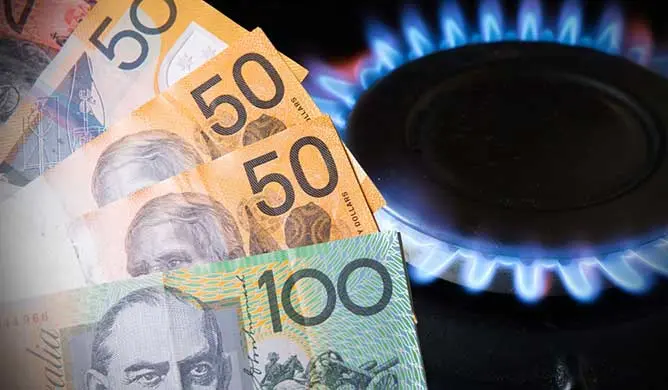Time to read : 4 Minutes
Household Gas Bill Relief Unlikely To Come Any Time Soon
Aussie households hoping for gas bill relief in the near future may want to cool their jets.
The government's mandatory gas code of conduct, which caps the price of gas at $12 per gigajoule (GJ), does not affect existing supply contracts. The cap only applies to wholesale prices and does not directly affect the retail price. This means your gas bills will not immediately decrease – if at all.
Russia's invasion of Ukraine caused a significant increase in gas prices. Some businesses copped a fourfold increase in energy costs due to the international conflict. This has also contributed to increased cost of goods and services.
The Australian Competition and Consumer Commission (ACCC) recommended a price cap of $12 per gigajoule (GJ) valid until 2025, which most wholesale offers for domestic use in 2021 already fell under, making the cap pretty much useless for most households.
The cap has exceptions for export contracts, short-term supply, and smaller producers. Since a large portion of the country's gas is being sent overseas, some say more liquified natural gas (LNG) may be imported to meet domestic demand. This would bypass the new law, meaning the cap wouldn't apply, and your gas bills could end up being even higher.
The lower prices paid for gas in Australia could discourage new supply. There is also a risk of declining gas supply surpassing the decline in demand, resulting in higher costs for households and businesses that rely on gas.
The Australian Energy Market Operator also warns of potential gas shortages during severe weather conditions in winter.
The ACCC believes the mandatory gas code will reduce the risk of domestic supply shortages. However, EnergyQuest predicts a potential supply shortage in the east coast gas market by the end of the decade.
While the government claims that price controls aim to ensure fair returns for domestic producers, the Australian Council of Social Service (ACOSS) wants additional measures to lessen the burden on households. One suggestion is to impose a 10% royalty on offshore gas production to fund a transition away from gas.
What can you do to reduce your gas bills?
There are a few things you can do to reduce your gas usage and get your gas bills down.
1. Change your hot water system
Hot water storage systems are inefficient, especially in cooler weather, so consider switching from storage to instantaneous.
2. Insulate against heat loss
Insulate the water pipes attached to your hot water system to reduce heat loss and save you money.
3. Lower your hot water temperature setting
Turn down the thermostat on your gas hot water system. That way you're not paying to heat it all the way up to then mix it with cool water to make it bearable. This tip could save you big bucks over a year.
4. Get a low-flow shower head
Low-flow shower heads still give you satisfying shower while using less water than less efficient shower heads.
5. Turn off your taps!
Make sure you close your taps properly and fix any drips. Even with the slightest drip can waste a lot of water – and your money with it.
6. Upgrade to more efficient appliances
The Water Efficiency Labelling and Standards scheme rates how much water your appliances use. If appliances using gas-heated hot water use less water it means less heating, less gas usage and less money spent on that appliance.
7. Wash your clothes in cold water
Washing machine and washing detergent makers have long made their appliances and powders or liquids just as effective when washing your clothes with cold water as with hot. If for some reason you really don’t want to switch to cold water washing, at least make sure you only wash your clothes when you have a full load (or adjust your water level to suit the volume of clothes being washed).
8. Find the economy mode button on your dishwasher
Use the economy mode on your dishwasher try to run it only when it’s full. No point washing your dishwasher more than your dishes.
9. Keep the heat inside your oven
Check your oven seals to keep heat escaping. Worn or damaged seals means more heat needed to do the job of cooking your food. Oh, and don't worry about pre-heating a gas oven. Most recipes include a pre-heating step for electric oven users. Gas ovens heat up way quicker.
10. Buy better pots and pans
Old pots and pans made from less heat conducive metals waste heat. A snug-fitting lid can also save a lot of energy when boiling. You can also turn off gas prior to food being cooked to allow the residual heat to finish the cooking process.
The Bottom Line
Your gas bills are not going to come down any time soon, so hunt around for the best deal possible.
Find whatever ways you can to reduce gas usage until retail prices come down, which may not be any time soon.
Go deeper: Switching from gas to electricity - explained
Financial disclaimer
The information contained on this web page is of general nature only and has been prepared without taking into consideration your objectives, needs and financial situation. You should check with a financial professional before making any decisions. Any opinions expressed within an article are those of the author and do not specifically reflect the views of Compare Club Australia Pty Ltd.
